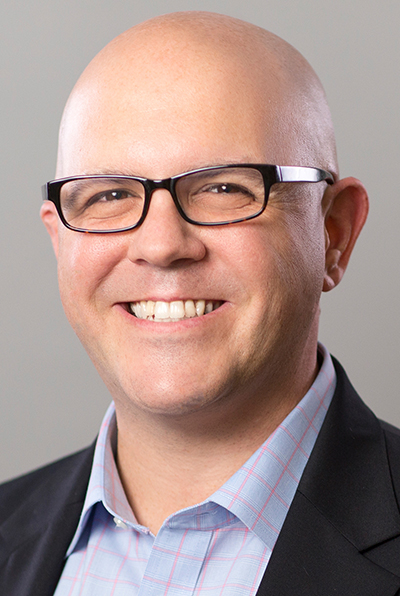Online reputation management is increasingly becoming a critical function that all providers, including clinical laboratories, must address or risk losing revenue
Recent surveys cite growing evidence that Facebook (NASDAQ:FB) and online review sites such as Yelp (NYSE:YELP) are swiftly becoming healthcare consumers’ preferred sources for researching doctors, hospitals, medical laboratories, and other medical service providers.
Healthcare consumers are using the Internet to review information on healthcare providers prior to visits. More important, data show a majority of Americans share their healthcare experiences publicly online following visits with providers.
This should serve as a wakeup call for clinical laboratories and anatomic pathology groups that have not developed effective social media strategies, as they are clearly among the health services being evaluated.
Significance of Online Reputation Management
Healthcare Dive reported research conducted by Binary Fountain indicated that:
- More than half of Americans (51%) reported sharing their healthcare experiences online, an increase of 65% over just one year ago;
- Among Millennials (people born between 1981 and 1996) that number jumps to 70%, a 94% increase over last year;
- 70% of Americans overall say online ratings and reviews influenced their choices of physicians and facilities;
- More than 40% of respondents admitted they researched doctors online even after being referred to them by another healthcare professional.

Healthcare Dive also noted that Millennials are likely to consider online reviews and ratings of healthcare professionals to be trustworthy.
- 97% of 24- to 34-year-olds report believing online comments are reliable;
- While 100% of the 18- to 24-year-olds surveyed felt similarly.
Pathologists and clinical laboratory administrators should consider the two findings above as evidence that a major change has already happened in how the younger generations look for—and select—their hospitals, their physicians, and their clinical laboratory providers. Thus, every pathology group and clinical laboratory should have a business strategy for managing the Internet presence of their labs. Failure to do so means that competing labs that do a good job of managing their Internet presence will be more successful at winning the lab testing business of Gen Xers (born 1965-1980), Millennials (Gen Y, born 1981-1996), and Gen Z (born 1997-2009).
In addition, the survey discovered that the most important qualities consumers look for in a doctor are:
- Friendly and caring attitudes;
- Physicians’ ability to answer questions; and
- Thoroughness of examinations.
Those polled reported the most frustrating issues when dealing with healthcare professionals were:
- Office wait times;
- Cost and payment concerns;
- Wait times for exam and medical laboratory results; and
- Scheduling appointments.
It’s All in a Word
Earlier this year, Healthcare Dive also reported on research that examined online reviews and their content conducted by Penn Medicine. Researchers at the University of Pennsylvania used digital tools and data analytics to help healthcare providers better understand and improve the patient experience.
The researchers analyzed 51,376 online reviews about 1,566 hospitals posted on Yelp over a 12-year period. They published their findings in the Journal of General Internal Medicine (JGIM).
They concluded the word most often found in positive Yelp reviews was “friendly.” Their example of how positive review writers used this word: “The doctors, nurses, and X-ray technician who helped me out were all so cool and friendly. It really restored my faith in humanity after I got hit on my bike.”
Other words the researchers commonly found in good online reviews include “great, staff, and very.”
“Told” was the word most often found in negative reviews. The researchers’ example: “I constantly told them that none of that was true and the nurse there wouldn’t believe me.” It appears from the JGIM study that Millennials often felt healthcare professionals did not listen to them.
The researchers identified “worst, hours, rude, said, no and not” as other words often found in negative reviews.

Half of Millennials Prefer Internet Research and Online Virtual Healthcare
Another survey conducted by Harmony Healthcare IT, a health data management firm based in South Bend, Ind., found that more millennials are researching the Internet for medical advice in lieu of actual doctor visits.
PC Magazine reported Harmony Healthcare IT’s survey found:
- 73% of Millennials reported following medical advice found online instead of going to a doctor; and
- 93% reported researching medical conditions online in addition to a doctor visit.
The survey also found that 48% of millennials trust online resources for medical information and that 48% prefer virtual doctor office visits over in-person visits.
In addition, 24% of this age group have gone five or more years without a physical and 57% prefer high-deductible health plans (HDHPs).
“With an emphasis on convenience, low cost, and technology, it will be interesting to see how this generation helps shape the future of health and how both patients and providers will adapt to those changes along the way,” Harmony Healthcare IT wrote in a blog post.
The results of these surveys illustrate why clinical laboratories and anatomic pathology groups must have a social media strategy for managing their reputations and presence on the Internet, especially where Millennials are concerned.
That strategy should include easy and informative ways for patients to learn about medical laboratory services, pricing of lab tests, quality of work, and methods consumers can use to leave online feedback and receive responses to their comments.
—JP Schlingman
Related Information:
More than Half of Americans Share Doctor Experiences Online, Survey Shows
“Told”: The Word Most Correlated to Negative Online Hospital Reviews
No. 1 Word in Online Negative Hospital Reviews is ‘Told’
Doctors? Nah; Most Millennials Get Medical Advice Online
Millennials Forge New Paths to Healthcare, Providing Opportunities for Clinical Laboratories




Yes, I agree that being ‘told’ and asking in patients ears, and in everyday living are two completing different languages.
Doctors are in a hurry sometimes to move on to the next patient, that they may rush through the visit and use poor choice of words. After all, they do have a quota to meet on a daily basis.